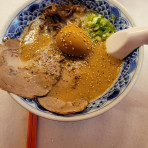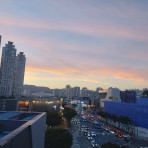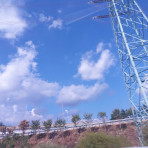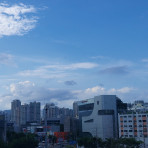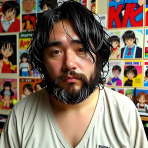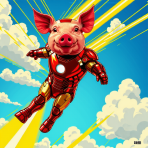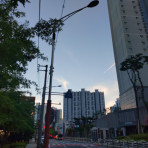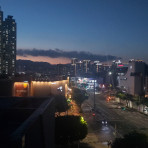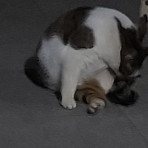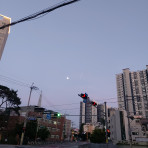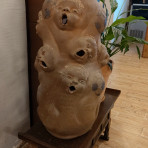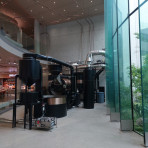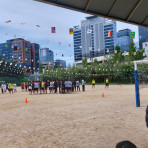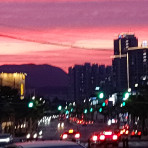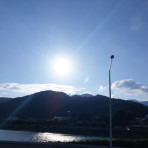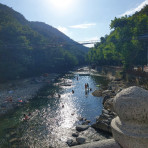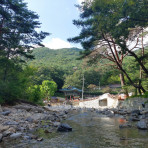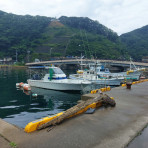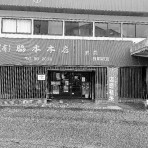Short film about army life depicts North Korea’s caste system
본문
Sat, 17 Feb 2024 09:17:19 -0500

Park Jin Chul was still high on meth and slightly drunk when he spat into his hand and held it out in front of Ri Kwang Hyuk’s face.
“Eat this,” he ordered his junior non-commissioned officer.
Kwang Hyuk thought about submitting to his former classmate, who had once looked up to him but who now outranked him in the North Korean army.
But he had seen enough. Jin Chul was still the slacker he was back then, and he was only leading this unit because he came from a higher-status family. He talked down to his men and ordered them around like servants.
Defiantly, Kwang Hyuk stood motionless.
“Fine, if that’s how it is,” Jin Chul said as he grabbed Kwang Hyuk by the throat and slammed him against the wall.
Life in the North Korean military is very much like this scene from recently released short film “Two Soldiers,” said defector-turned-director Jeong Haneul, who had been a soldier when he escaped to the South across the demilitarized zone in 2012.
But the main point of his 23-minute film is not so much to reveal hardships facing soldiers but more to illustrate the unfairness of North Korea’s songbun system of ascribed status, he said.
It was this caste-like system that drove Jeong to risk everything to get to South Korea, where he became a film director.
“I titled the film ‘Two Soldiers’ to show through the lives of soldiers how differences in class and songbun exist as discrimination,” Jeong told RFA Korean.
Caste based on loyalty
Those with the highest songbun are descended from people who fought alongside national founder Kim Il Sung against colonial Japan prior to and during World War II, and have demonstrated through multiple generations that they are steadfast in their loyalty to the North Korean leadership.
These people are also the most privileged and can expect a fast track to membership in the ruling Korean Workers’ Party, which almost guarantees them cushy government jobs, the best education for their children, and expensive homes in the best parts of the capital Pyongyang.
Meanwhile those with the lowest songbun are descendants of those who collaborated with Japan during the colonial period, or criminals.
They have almost no hope of ever joining the party and they aren’t even allowed to visit the capital without a rare invitation from the government. They are given the most menial jobs and have little access to higher education.
An image from “Two Soldiers," to movie Haneul made the movie to show how differences in class and songbun exist as discrimination. (Courtesy Jeong Haneul)
In essence, those with low songbun are paying for crimes or lapses of loyalty committed by their grandparents or even great-grandparents, and those with high songbun are often reaping the rewards that they did not earn.
North Korea’s mandatory military service, which, for men, is now seven years but was 10 years until recently, brings people of all strata of society together, but those from the lower status must fall in line or else, Jeong said.
Sick of this system, Jeong sneaked away when the senior officer at his border guard post was taking a midday nap. Normally, a fence surging with 2,200 volts of electricity would have prevented such an escape, but it had collapsed in a recent typhoon.
The next day, he encountered a South Korean soldier on the southern side of the border and told him he wanted to defect.
As of 2024, the total number of North Korean escapees to have entered South Korea since the end of the 1950-53 Korean War is 34,078.
Jeong is among around only 400 who crossed the land border to South Korea and lived to tell the tale. Most take a much more circuitous route through China and Southeast Asia, from where they fly to Seoul.
Elements of truth
The film “Two Soldiers,” which debuted on Jan. 21 and can be viewed on YouTube, is based loosely on Jeong’s own experience.
His family were laborers, relatively low on the social ladder, so his time in the army was similar to that of the protagonist Kwang Hyuk.
Jin Chul, the arrogant and abusive higher ranking soldier in the film, is based on a schoolmate with whom Jeong served whose uncle was a high-ranking military official.
The classmate would brag that he would be a member of the party only five years after being discharged, easily get a recommendation to attend the prestigious Kim Il Sung University and become a party official upon graduation – making him one of the elite.
Soldiers drink imported whiskey – a rarity in North Korea – in a scene from the film “Two Soldiers.” (Two Soldiers)
“He was also able to be assigned a sleeping position wherever he wanted, and I remember his untanned face, " he said. “[He even] disappeared for several days during training to rest at his uncle's house in Pyongyang and then came back.”
In the movie, the privileged Jin Chul, whose uncle is a big shot political official, doesn’t even bother wearing his full uniform. When Kwang Hyuk arrives, Jin Chul orders Kim Kwang Il, a private under his command whom he treats like a servant, to bring some whiskey and food for him and his old schoolmate.
Kwang Hyuk questions whether it is wise to be drinking openly while they should be on duty, but Jin Chul explains that he’s the boss, and if Kwang Hyuk sticks with him, he can get preferential treatment.
Though soldiers aren’t supposed to have any visitors, Jin Chul’s girlfriend arrives in a Mercedes Benz convertible, and she delivers him a supply of “ice,” the North Korean street name for crystal meth.
Jin Chul later passes out on his bunk in the middle of the day after binging on meth. He uses the half-empty bottle of Ballantine’s whiskey as a makeshift pillow.
Intentionally exaggerated
Jin Chul’s portrayal could be seen as over the top, but Jeong says that is deliberate.
“I intentionally exaggerated the setting in the movie, but considering my experience in military life, North Korea is capable of doing more than that,” he said
Jeong, as a laborer, was in a better situation than farm workers, he said. In order to get off the farm, they would have to be recommended to a military school that trains officers or a security college that trains security agents after discharge.
During Jeong’s service, an order was issued to “reduce the number of former farm workers recommended to military schools,” which closed off many opportunities for them.
“This kind of discrimination is not anyone’s fault,” he said. “The North Korean authorities who created that system are the cause.”
While he was making “Two Soldiers,” Jeong said he was often reminded about his experience during bootcamp.
“I missed my parents so much and thought about my hometown a lot,” he said. “My weight was 45 kilograms [99 pounds]. I was almost malnourished.”
His lack of freedom was stifling, Jeong said.
“I was unable to do anything or go anywhere. There was no one on my side and I felt completely isolated,” he said. “I cried endlessly in the blowing autumn wind. I was hoping that someone would take me away and that someone would recognize me.”
Translated by Leejin J. Chung. Written in English by Eugene Whong. Edited by Malcolm Foster.
Park Jin Chul was still high on meth and slightly drunk when he spat into his hand and held it out in front of Ri Kwang Hyuk’s face.
“Eat this,” he ordered his junior non-commissioned officer.
Kwang Hyuk thought about submitting to his former classmate, who had once looked up to him but who now outranked him in the North Korean army.
But he had seen enough. Jin Chul was still the slacker he was back then, and he was only leading this unit because he came from a higher-status family. He talked down to his men and ordered them around like servants.
Defiantly, Kwang Hyuk stood motionless.
“Fine, if that’s how it is,” Jin Chul said as he grabbed Kwang Hyuk by the throat and slammed him against the wall.
Life in the North Korean military is very much like this scene from recently released short film “Two Soldiers,” said defector-turned-director Jeong Haneul, who had been a soldier when he escaped to the South across the demilitarized zone in 2012.
But the main point of his 23-minute film is not so much to reveal hardships facing soldiers but more to illustrate the unfairness of North Korea’s songbun system of ascribed status, he said.
It was this caste-like system that drove Jeong to risk everything to get to South Korea, where he became a film director.
“I titled the film ‘Two Soldiers’ to show through the lives of soldiers how differences in class and songbun exist as discrimination,” Jeong told RFA Korean.
Caste based on loyalty
Those with the highest songbun are descended from people who fought alongside national founder Kim Il Sung against colonial Japan prior to and during World War II, and have demonstrated through multiple generations that they are steadfast in their loyalty to the North Korean leadership.
These people are also the most privileged and can expect a fast track to membership in the ruling Korean Workers’ Party, which almost guarantees them cushy government jobs, the best education for their children, and expensive homes in the best parts of the capital Pyongyang.
Meanwhile those with the lowest songbun are descendants of those who collaborated with Japan during the colonial period, or criminals.
They have almost no hope of ever joining the party and they aren’t even allowed to visit the capital without a rare invitation from the government. They are given the most menial jobs and have little access to higher education.
An image from “Two Soldiers," to movie Haneul made the movie to show how differences in class and songbun exist as discrimination. (Courtesy Jeong Haneul)
In essence, those with low songbun are paying for crimes or lapses of loyalty committed by their grandparents or even great-grandparents, and those with high songbun are often reaping the rewards that they did not earn.
North Korea’s mandatory military service, which, for men, is now seven years but was 10 years until recently, brings people of all strata of society together, but those from the lower status must fall in line or else, Jeong said.
Sick of this system, Jeong sneaked away when the senior officer at his border guard post was taking a midday nap. Normally, a fence surging with 2,200 volts of electricity would have prevented such an escape, but it had collapsed in a recent typhoon.
The next day, he encountered a South Korean soldier on the southern side of the border and told him he wanted to defect.
As of 2024, the total number of North Korean escapees to have entered South Korea since the end of the 1950-53 Korean War is 34,078.
Jeong is among around only 400 who crossed the land border to South Korea and lived to tell the tale. Most take a much more circuitous route through China and Southeast Asia, from where they fly to Seoul.
Elements of truth
The film “Two Soldiers,” which debuted on Jan. 21 and can be viewed on YouTube, is based loosely on Jeong’s own experience.
His family were laborers, relatively low on the social ladder, so his time in the army was similar to that of the protagonist Kwang Hyuk.
Jin Chul, the arrogant and abusive higher ranking soldier in the film, is based on a schoolmate with whom Jeong served whose uncle was a high-ranking military official.
The classmate would brag that he would be a member of the party only five years after being discharged, easily get a recommendation to attend the prestigious Kim Il Sung University and become a party official upon graduation – making him one of the elite.
Soldiers drink imported whiskey – a rarity in North Korea – in a scene from the film “Two Soldiers.” (Two Soldiers)
“He was also able to be assigned a sleeping position wherever he wanted, and I remember his untanned face, " he said. “[He even] disappeared for several days during training to rest at his uncle's house in Pyongyang and then came back.”
In the movie, the privileged Jin Chul, whose uncle is a big shot political official, doesn’t even bother wearing his full uniform. When Kwang Hyuk arrives, Jin Chul orders Kim Kwang Il, a private under his command whom he treats like a servant, to bring some whiskey and food for him and his old schoolmate.
Kwang Hyuk questions whether it is wise to be drinking openly while they should be on duty, but Jin Chul explains that he’s the boss, and if Kwang Hyuk sticks with him, he can get preferential treatment.
Though soldiers aren’t supposed to have any visitors, Jin Chul’s girlfriend arrives in a Mercedes Benz convertible, and she delivers him a supply of “ice,” the North Korean street name for crystal meth.
Jin Chul later passes out on his bunk in the middle of the day after binging on meth. He uses the half-empty bottle of Ballantine’s whiskey as a makeshift pillow.
Intentionally exaggerated
Jin Chul’s portrayal could be seen as over the top, but Jeong says that is deliberate.
“I intentionally exaggerated the setting in the movie, but considering my experience in military life, North Korea is capable of doing more than that,” he said
Jeong, as a laborer, was in a better situation than farm workers, he said. In order to get off the farm, they would have to be recommended to a military school that trains officers or a security college that trains security agents after discharge.
During Jeong’s service, an order was issued to “reduce the number of former farm workers recommended to military schools,” which closed off many opportunities for them.
“This kind of discrimination is not anyone’s fault,” he said. “The North Korean authorities who created that system are the cause.”
While he was making “Two Soldiers,” Jeong said he was often reminded about his experience during bootcamp.
“I missed my parents so much and thought about my hometown a lot,” he said. “My weight was 45 kilograms [99 pounds]. I was almost malnourished.”
His lack of freedom was stifling, Jeong said.
“I was unable to do anything or go anywhere. There was no one on my side and I felt completely isolated,” he said. “I cried endlessly in the blowing autumn wind. I was hoping that someone would take me away and that someone would recognize me.”
Translated by Leejin J. Chung. Written in English by Eugene Whong. Edited by Malcolm Foster.
자유아시아방송 제공 및 저작권 소유 | RFA provided and copyrighted -www.rfa.org

Park Jin Chul was still high on meth and slightly drunk when he spat into his hand and held it out in front of Ri Kwang Hyuk’s face.
“Eat this,” he ordered his junior non-commissioned officer.
Kwang Hyuk thought about submitting to his former classmate, who had once looked up to him but who now outranked him in the North Korean army.
But he had seen enough. Jin Chul was still the slacker he was back then, and he was only leading this unit because he came from a higher-status family. He talked down to his men and ordered them around like servants.
Defiantly, Kwang Hyuk stood motionless.
“Fine, if that’s how it is,” Jin Chul said as he grabbed Kwang Hyuk by the throat and slammed him against the wall.
Life in the North Korean military is very much like this scene from recently released short film “Two Soldiers,” said defector-turned-director Jeong Haneul, who had been a soldier when he escaped to the South across the demilitarized zone in 2012.
But the main point of his 23-minute film is not so much to reveal hardships facing soldiers but more to illustrate the unfairness of North Korea’s songbun system of ascribed status, he said.
It was this caste-like system that drove Jeong to risk everything to get to South Korea, where he became a film director.
“I titled the film ‘Two Soldiers’ to show through the lives of soldiers how differences in class and songbun exist as discrimination,” Jeong told RFA Korean.
Caste based on loyalty
Those with the highest songbun are descended from people who fought alongside national founder Kim Il Sung against colonial Japan prior to and during World War II, and have demonstrated through multiple generations that they are steadfast in their loyalty to the North Korean leadership.
These people are also the most privileged and can expect a fast track to membership in the ruling Korean Workers’ Party, which almost guarantees them cushy government jobs, the best education for their children, and expensive homes in the best parts of the capital Pyongyang.
Meanwhile those with the lowest songbun are descendants of those who collaborated with Japan during the colonial period, or criminals.
They have almost no hope of ever joining the party and they aren’t even allowed to visit the capital without a rare invitation from the government. They are given the most menial jobs and have little access to higher education.
An image from “Two Soldiers," to movie Haneul made the movie to show how differences in class and songbun exist as discrimination. (Courtesy Jeong Haneul)
In essence, those with low songbun are paying for crimes or lapses of loyalty committed by their grandparents or even great-grandparents, and those with high songbun are often reaping the rewards that they did not earn.
North Korea’s mandatory military service, which, for men, is now seven years but was 10 years until recently, brings people of all strata of society together, but those from the lower status must fall in line or else, Jeong said.
Sick of this system, Jeong sneaked away when the senior officer at his border guard post was taking a midday nap. Normally, a fence surging with 2,200 volts of electricity would have prevented such an escape, but it had collapsed in a recent typhoon.
The next day, he encountered a South Korean soldier on the southern side of the border and told him he wanted to defect.
As of 2024, the total number of North Korean escapees to have entered South Korea since the end of the 1950-53 Korean War is 34,078.
Jeong is among around only 400 who crossed the land border to South Korea and lived to tell the tale. Most take a much more circuitous route through China and Southeast Asia, from where they fly to Seoul.
Elements of truth
The film “Two Soldiers,” which debuted on Jan. 21 and can be viewed on YouTube, is based loosely on Jeong’s own experience.
His family were laborers, relatively low on the social ladder, so his time in the army was similar to that of the protagonist Kwang Hyuk.
Jin Chul, the arrogant and abusive higher ranking soldier in the film, is based on a schoolmate with whom Jeong served whose uncle was a high-ranking military official.
The classmate would brag that he would be a member of the party only five years after being discharged, easily get a recommendation to attend the prestigious Kim Il Sung University and become a party official upon graduation – making him one of the elite.
Soldiers drink imported whiskey – a rarity in North Korea – in a scene from the film “Two Soldiers.” (Two Soldiers)
“He was also able to be assigned a sleeping position wherever he wanted, and I remember his untanned face, " he said. “[He even] disappeared for several days during training to rest at his uncle's house in Pyongyang and then came back.”
In the movie, the privileged Jin Chul, whose uncle is a big shot political official, doesn’t even bother wearing his full uniform. When Kwang Hyuk arrives, Jin Chul orders Kim Kwang Il, a private under his command whom he treats like a servant, to bring some whiskey and food for him and his old schoolmate.
Kwang Hyuk questions whether it is wise to be drinking openly while they should be on duty, but Jin Chul explains that he’s the boss, and if Kwang Hyuk sticks with him, he can get preferential treatment.
Though soldiers aren’t supposed to have any visitors, Jin Chul’s girlfriend arrives in a Mercedes Benz convertible, and she delivers him a supply of “ice,” the North Korean street name for crystal meth.
Jin Chul later passes out on his bunk in the middle of the day after binging on meth. He uses the half-empty bottle of Ballantine’s whiskey as a makeshift pillow.
Intentionally exaggerated
Jin Chul’s portrayal could be seen as over the top, but Jeong says that is deliberate.
“I intentionally exaggerated the setting in the movie, but considering my experience in military life, North Korea is capable of doing more than that,” he said
Jeong, as a laborer, was in a better situation than farm workers, he said. In order to get off the farm, they would have to be recommended to a military school that trains officers or a security college that trains security agents after discharge.
During Jeong’s service, an order was issued to “reduce the number of former farm workers recommended to military schools,” which closed off many opportunities for them.
“This kind of discrimination is not anyone’s fault,” he said. “The North Korean authorities who created that system are the cause.”
While he was making “Two Soldiers,” Jeong said he was often reminded about his experience during bootcamp.
“I missed my parents so much and thought about my hometown a lot,” he said. “My weight was 45 kilograms [99 pounds]. I was almost malnourished.”
His lack of freedom was stifling, Jeong said.
“I was unable to do anything or go anywhere. There was no one on my side and I felt completely isolated,” he said. “I cried endlessly in the blowing autumn wind. I was hoping that someone would take me away and that someone would recognize me.”
Translated by Leejin J. Chung. Written in English by Eugene Whong. Edited by Malcolm Foster.
Park Jin Chul was still high on meth and slightly drunk when he spat into his hand and held it out in front of Ri Kwang Hyuk’s face.
“Eat this,” he ordered his junior non-commissioned officer.
Kwang Hyuk thought about submitting to his former classmate, who had once looked up to him but who now outranked him in the North Korean army.
But he had seen enough. Jin Chul was still the slacker he was back then, and he was only leading this unit because he came from a higher-status family. He talked down to his men and ordered them around like servants.
Defiantly, Kwang Hyuk stood motionless.
“Fine, if that’s how it is,” Jin Chul said as he grabbed Kwang Hyuk by the throat and slammed him against the wall.
Life in the North Korean military is very much like this scene from recently released short film “Two Soldiers,” said defector-turned-director Jeong Haneul, who had been a soldier when he escaped to the South across the demilitarized zone in 2012.
But the main point of his 23-minute film is not so much to reveal hardships facing soldiers but more to illustrate the unfairness of North Korea’s songbun system of ascribed status, he said.
It was this caste-like system that drove Jeong to risk everything to get to South Korea, where he became a film director.
“I titled the film ‘Two Soldiers’ to show through the lives of soldiers how differences in class and songbun exist as discrimination,” Jeong told RFA Korean.
Caste based on loyalty
Those with the highest songbun are descended from people who fought alongside national founder Kim Il Sung against colonial Japan prior to and during World War II, and have demonstrated through multiple generations that they are steadfast in their loyalty to the North Korean leadership.
These people are also the most privileged and can expect a fast track to membership in the ruling Korean Workers’ Party, which almost guarantees them cushy government jobs, the best education for their children, and expensive homes in the best parts of the capital Pyongyang.
Meanwhile those with the lowest songbun are descendants of those who collaborated with Japan during the colonial period, or criminals.
They have almost no hope of ever joining the party and they aren’t even allowed to visit the capital without a rare invitation from the government. They are given the most menial jobs and have little access to higher education.
An image from “Two Soldiers," to movie Haneul made the movie to show how differences in class and songbun exist as discrimination. (Courtesy Jeong Haneul)
In essence, those with low songbun are paying for crimes or lapses of loyalty committed by their grandparents or even great-grandparents, and those with high songbun are often reaping the rewards that they did not earn.
North Korea’s mandatory military service, which, for men, is now seven years but was 10 years until recently, brings people of all strata of society together, but those from the lower status must fall in line or else, Jeong said.
Sick of this system, Jeong sneaked away when the senior officer at his border guard post was taking a midday nap. Normally, a fence surging with 2,200 volts of electricity would have prevented such an escape, but it had collapsed in a recent typhoon.
The next day, he encountered a South Korean soldier on the southern side of the border and told him he wanted to defect.
As of 2024, the total number of North Korean escapees to have entered South Korea since the end of the 1950-53 Korean War is 34,078.
Jeong is among around only 400 who crossed the land border to South Korea and lived to tell the tale. Most take a much more circuitous route through China and Southeast Asia, from where they fly to Seoul.
Elements of truth
The film “Two Soldiers,” which debuted on Jan. 21 and can be viewed on YouTube, is based loosely on Jeong’s own experience.
His family were laborers, relatively low on the social ladder, so his time in the army was similar to that of the protagonist Kwang Hyuk.
Jin Chul, the arrogant and abusive higher ranking soldier in the film, is based on a schoolmate with whom Jeong served whose uncle was a high-ranking military official.
The classmate would brag that he would be a member of the party only five years after being discharged, easily get a recommendation to attend the prestigious Kim Il Sung University and become a party official upon graduation – making him one of the elite.
Soldiers drink imported whiskey – a rarity in North Korea – in a scene from the film “Two Soldiers.” (Two Soldiers)
“He was also able to be assigned a sleeping position wherever he wanted, and I remember his untanned face, " he said. “[He even] disappeared for several days during training to rest at his uncle's house in Pyongyang and then came back.”
In the movie, the privileged Jin Chul, whose uncle is a big shot political official, doesn’t even bother wearing his full uniform. When Kwang Hyuk arrives, Jin Chul orders Kim Kwang Il, a private under his command whom he treats like a servant, to bring some whiskey and food for him and his old schoolmate.
Kwang Hyuk questions whether it is wise to be drinking openly while they should be on duty, but Jin Chul explains that he’s the boss, and if Kwang Hyuk sticks with him, he can get preferential treatment.
Though soldiers aren’t supposed to have any visitors, Jin Chul’s girlfriend arrives in a Mercedes Benz convertible, and she delivers him a supply of “ice,” the North Korean street name for crystal meth.
Jin Chul later passes out on his bunk in the middle of the day after binging on meth. He uses the half-empty bottle of Ballantine’s whiskey as a makeshift pillow.
Intentionally exaggerated
Jin Chul’s portrayal could be seen as over the top, but Jeong says that is deliberate.
“I intentionally exaggerated the setting in the movie, but considering my experience in military life, North Korea is capable of doing more than that,” he said
Jeong, as a laborer, was in a better situation than farm workers, he said. In order to get off the farm, they would have to be recommended to a military school that trains officers or a security college that trains security agents after discharge.
During Jeong’s service, an order was issued to “reduce the number of former farm workers recommended to military schools,” which closed off many opportunities for them.
“This kind of discrimination is not anyone’s fault,” he said. “The North Korean authorities who created that system are the cause.”
While he was making “Two Soldiers,” Jeong said he was often reminded about his experience during bootcamp.
“I missed my parents so much and thought about my hometown a lot,” he said. “My weight was 45 kilograms [99 pounds]. I was almost malnourished.”
His lack of freedom was stifling, Jeong said.
“I was unable to do anything or go anywhere. There was no one on my side and I felt completely isolated,” he said. “I cried endlessly in the blowing autumn wind. I was hoping that someone would take me away and that someone would recognize me.”
Translated by Leejin J. Chung. Written in English by Eugene Whong. Edited by Malcolm Foster.
좋아요15
이 글을 좋아요하셨습니다
관련링크
등록된 댓글이 없습니다.

